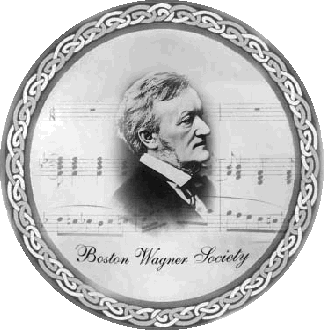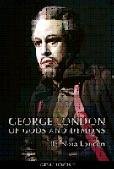George London: A Life Well Lived
George London: Of Gods and Demons, by Nora London; Baskerville Publishers, Great Voices 9, 262 pp., with 24 photographs, a CD with rare live recordings, a chronology, and a discography; $39.95
George London towered over the mid-twentieth century operatic world, gracing opera houses around the world with his magnificent bass, intense acting, and memorable stage presence. In this charming and warm-hearted biography by his wife, Nora London, we learn of his humble beginnings in Lithuania and the family’s subsequent move to Montreal. In 1931, when London was 11, he began listening to the Metropolitan Opera’s broadcasts and was bitten by the operatic bug. After the family’s move to Los Angeles, a neighbor heard London sing in the shower and recommended to his parents that he take singing lessons. Thus began his musical education. During his first audition for Dr. Hugo Strelitzer, he “cracked on the top notes but revealed in his middle range and in the lower part of his voice some extraordinary quality, a natural and God-given velvet quality that could lead this youngster to untold heights. So, I accepted him into the opera workshop.” Eventually, in 1951 London was hired by Wieland Wagner to sing Amfortas in the first post–World War II Parsifal, conducted by Hans Knappertsbusch (excerpted in the accompanying CD in a powerful, hair-raising performance). He sang Amfortas nearly every year until 1964. Wieland commented to London’s wife, Nora: “Grandfather [Richard Wagner] could not have visualized anyone greater than George London.”
London returned to the Bayreuth Festival numerous times, adding the Dutchman and Wotan to his repertoire. His Senta, Astrid Varnay, had this to say about him: “At rehearsals he was all business, totally immersed in the intellectual, emotional, musical and dramatic demands of whatever he was interpreting, adjusting like a finely calibrated machine to the impulses coming to him from conductors, directors and his colleagues on the stage, plus responding to the impulses of his own noble convictions.”
In 1949 London debuted at the Vienna Opera and in 1951 at the Met, singing Amonasro in Aïda for both opera houses. In New York the critic and composer Virgil Thomson described him as “the greatest singing actor of our times.” London was thirty-one. He sang numerous other roles, the most famous of which was Boris at the Bolshoi Theater in Moscow. London was the first American to sing the role there, in Russian, to great acclaim. The two Boris excerpts included on the accompanying CD passed the frissons test by a wide margin. For mysterious reasons, London’s participation as Wotan in Das Rheingold in the seminal Ring Cycle recorded by Walter Legge on Decca and conducted by Georg Solti is never mentioned in the text.
In the early sixties, London began having vocal problems. After a throat infection, his right vocal cord stopped functioning effectively. He continued singing, compensating for this loss with his left vocal chord, but eventually the affected chord atrophied and he had to quit. He took jobs as director of the Kennedy Center, the National Opera Institute, and Washington Opera but never sang again.
This delightful and down-to-earth book, despite its poor editing and proofreading, fleshes out the legend that was George London with many amusing and informative anecdotes. I highly recommend it.
– Dalia Geffen

